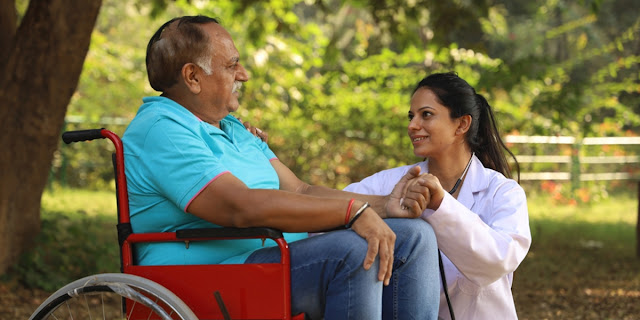Geriatric Healthcare by 2025
The need for geriatric healthcare is rising as a result of aging populations in both developing and developed countries. By 2025, one billion more people are anticipated to live, with 300 million of them being 65 years of age or older. The financial and caregiver resources required to care for the frail will peak and start to diminish with population rises. A significant issue will be the aging population.
In general, in 2025, many more individuals will be completely aware of their health hazards, and they will approach prevention and treatment in a proactive rather than a reactive manner. They will adopt preventative practices based on highly individualized insights because of the awareness of their own specific risks of getting a chronic disease. Many people will place a lot of emphasis on maintaining their physical and mental health, which will include engaging in specialized amounts of activity and diet, in order to age properly.A change in emphasis toward preventative interventions, such as vaccinations, genetic testing, and treatments that improve vitality, wellbeing, and immunological health, has been sparked by payer incentives, role models, and the desire for a longer, better life among many consumers. Through verified applications, wearables, and other linked monitoring devices, consumers may also keep an eye on their medical information. For some people, data may not be sufficient to modify their behavior, and they may need additional motivation, such as that provided by a digital twin or a virtual health coach.
In the year 2025, to provide seamless integrated care, healthcare services, and clinical pathways will be developed with and around the requirements of certain patient groups. Primary care health care providers will collaborate to develop patient care plans and serve as care navigators. The delivery of treatment will be improved and this can be attributed to the widespread usage of AI-enabled technology, including smart ambulance services, pharmacy dispensing, imaging, and pathology services. Remote Patient Monitoring will be managed through virtual command centers for customer connections.
Continuous Remote Patient Monitoring at home and in hospitals, broadcast over the cloud, and displayed via real-time dashboards warn Healthcare Providers to a patient's status deteriorating. Community geriatric care providers will offer a hybrid (virtual and face-to-face) one-stop-shop in collaboration with the volunteer, private, health, and social care sectors. The health hubs will include rehabilitative, phlebotomy, diagnostic, and minor urgent care treatments in addition to high-quality preventative clinical services (such as ophthalmology and dentistry).
Healthcare organizations in 2025, will focus more on population health and "out of hospital" treatment. Primary and outpatient care that prioritizes digital technology is lowering the trip time and shields the neighborhood from emissions and contaminants.
The adoption of innovation at scale has been hindered historically by the risk-averse regulatory strategy taken by healthcare providers. Evidence from now and projections for the future show that, while changes in the regulatory environment were already underway to foster innovation, they have now accelerated as a result of the pandemic's impact. Regulators will be concentrating on finding a balance between the need to support innovation, safeguard patients, and deal with the fallout from innovation in 2025.
Athulya Senior Care is a geriatric care provider catering to the requirements of the growing silver community. Under senior care, they provide a plethora of services. They offer palliative care, transition care, skilled nursing care, and home healthcare. Athulya Assisted Living focuses on providing a first-class service to the elderly. We encourage short stays or stays for a considerable time. Our assisted living facilities give enhanced assistance to the elderly with kindness, love, and compassion.




Comments
Post a Comment